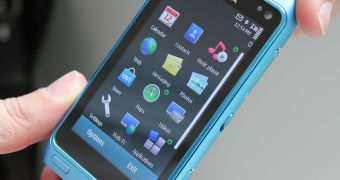There are a number of ways in which mobile malware can show up on a PC, lately many situations presenting themselves for these malevolent apps make their appearance on desktop computers.
The Microsoft Malware Protection Center has been constantly checking the frequency of different threats that normally target mobile platforms.
Their latest report shows that mostly Symbian targeting malicious elements are discovered, the mobile versions of Zeus and SpyEye being the most notable detections. The duo is mainly designed to steal data, especially account credentials, which are transmitted to the masterminds behind the operations, allowing them to access out digital assets.
Java ME occupies the second position, mostly because of the flexibility these malevolent components present. The majority of the detections are built to earn a profit for hackers by sending SMSs to premium-rate numbers without the user's knowledge.
Curiously, even though the Market is famous for serving rogue software, the malware numbers that targets Android are relatively low. However, if compared to the figures that relate only to Android threats, a considerable difference can be spotted.
When it comes to Windows Mobile, only three new players have been seen in comparison to the previous year. While TrojanDownloader:WinCE/MobUn.A and Trojan:WinCE/MobUn.A work together on sending text messages to premium numbers, Trojan:WinCE/Zitmo.A places itself on the device allowing the one that controls it to change settings. Zitmo alerts its master of its presence, who then uses incoming SMSs to indicate commands that are performed on the phone.
iOS and RIM come in last, with no major modifications compared to last year.
Because smartphone owners rarely deploy security solutions on their devices, malicious elements remain undetected until the phone is connected to a computer, but at that point, it could already be too late. This is why it's highly advised that you install at least an anti-virus app on your machine to protect it from malevolent elements.

 14 DAY TRIAL //
14 DAY TRIAL //